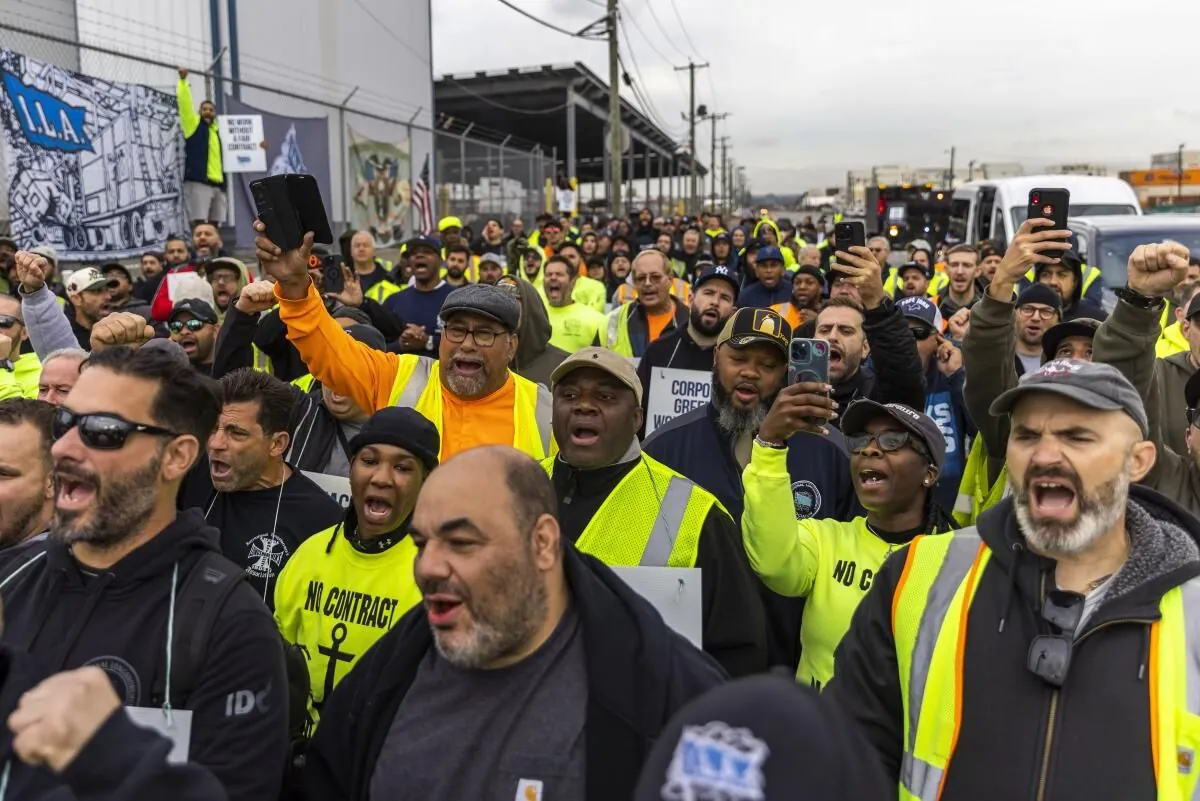In a significant development for U.S. labor relations, the Biden administration has successfully brokered a temporary agreement to end a dockworkers' strike that threatened to disrupt the nation's supply chains. The deal, reached on October 4, 2024, highlights President Joe Biden's distinctive pro-union approach, which has both garnered praise and sparked controversy.
The International Longshoremen's Association (ILA), founded in 1892, had been locked in a dispute with the United States Maritime Alliance (USMX), established in 1997. The strike, which began after midnight on a Monday, involved approximately 45,000 dockworkers at critical ports along the East and Gulf coasts.
White House Chief of Staff Jeff Zients played a pivotal role in the negotiations. In a pre-dawn Zoom call, Zients delivered an ultimatum to shipping company executives:
"I need the offer today — not tomorrow. Today. I'm going to brief the president in an hour that you believe you can get this done today."
This assertive stance reflects the administration's commitment to supporting labor unions, a position that sets Biden apart from his predecessors. The President has vowed to be the most "pro-union president in U.S. history," even joining a United Auto Workers picket line in 2023 – a first for a sitting U.S. president.
The agreement provides a 62% wage increase over six years for dockworkers, a significant improvement from the initial 50% offer. This outcome demonstrates the effectiveness of the administration's strategy, which included refusing to invoke the Taft-Hartley Act of 1947 to force an end to the strike.
However, Biden's approach has not been without criticism. Some economists argue that his pro-union stance may undermine other priorities and increase costs. Scott Lincicome, vice president at the Cato Institute, expressed concern:
"It does seem to me they're playing with fire here — pushing this negotiation and the nation's supply chains to the brink in the hope of a breakthrough is a real risk, and suggests they're over-prioritizing the labor vote over everyone else in the U.S. economy."
The resolution of this strike is particularly significant given its timing, just weeks before a crucial election. It provides temporary relief for Democrats and postpones further negotiations until January 15, 2025.
This labor dispute has highlighted the evolving nature of U.S. labor relations since the first recorded strike in American history in 1768. The Biden administration's handling of the situation may set a new precedent for Democratic approaches to labor issues, potentially influencing future policies and negotiations.
As the dust settles on this temporary agreement, questions remain about the long-term implications of Biden's pro-union advocacy. Will it become the new norm for Democratic administrations, or will it be viewed as an aberration in the traditionally more balanced approach to labor-management relations?
The coming months will be crucial in determining whether this strategy can lead to lasting improvements for workers while maintaining economic stability. As the ports reopen and commerce resumes, all eyes will be on the ongoing negotiations and their potential impact on the U.S. economy and labor landscape.
